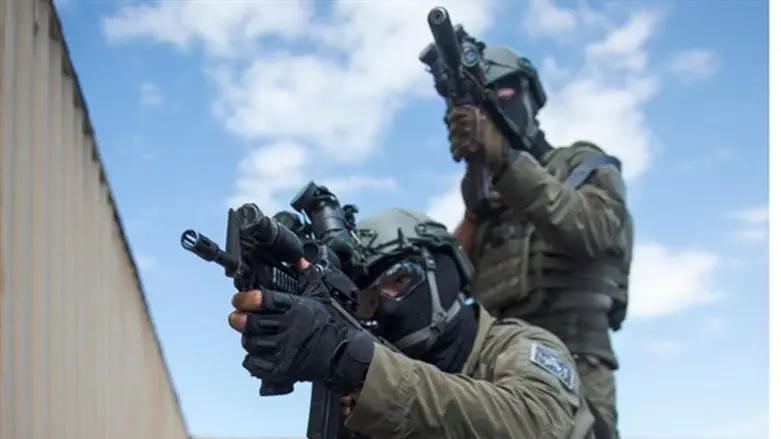
The IDF has announced that it will completely revamp the elite units, shifting away from the traditional "people's army" in which all Israelis serve equal amounts of time, to a more "professional army," mimicking the model for special forces used around the world.
According to the plan, soldiers in the Sayeret Matkal, Shayetet 13 naval commandos, Shaldag heli-borne commandos, and 669 search-and-rescue unit, will now serve 8 years, up dramatically from the previous 3-4 years they were required to serve. Troops will also get an academic degree funded by the IDF, in a series of moves IDF Chief of Staff Gadi Eizenkot said will improve the effectiveness of the soldiers drafting into these units.
"Every year, we take 9,000 high-school students who want to draft into the special forces, and put them through a series of punishing tests lasting between 9-12 days," he said on Wednesday. "By the end of the process, we have only a small amount of soldiers, and the lengthy training they undergo means that we hardly have any time to use them."
Soldiers from these units commonly undergo training lasting between 1.5 and two years. As the required service for soldiers is three years, soldiers serving in special operations units are obligated to sign on another year. This model differs radically from the special forces in both the United States and Britain, where elite troops commonly remain in their units for many years.
The shift means the elite forces will have the longest period in the army after pilots, who serve 9 years. Eizenkot said the best soldiers will be sent to regular infantry units in order to improve their level of professionalism.
Eizenkot also unveiled a series of steps the IDF has been taking in order to boost the lagging motivation to serve in combat units among the Israeli public. Combat soldiers will now earn NIS 2,000 a month, up from the current 1,700 a month.
"We can't force someone to risk his life for only NIS 1,7000," he noted.
Soldiers will also be divided into separate categories, such as "Forward Warriors," making up elite troops such as the Golani and paratrooper brigades, "Warriors," and "Operational Support Soldiers," who help forces in fields such as intelligence and communications.
"Warriors" are combat soldiers not first in line to hit the enemy, such as the Caracal mixed-gender unit.
Eizenkot made it clear that combat soldiers are the IDF's highest priority. Motivation to serve in combat units has been falling steadily, reaching a nadir of 67%, and Eizenkot ordered that combat units will get to choose which soldiers they want, before the intelligence and technological units.
"Combat soldiers are the most important part of an army," he stressed. "Intelligence is important, cyber warfare is important, but the most important thing is combat."